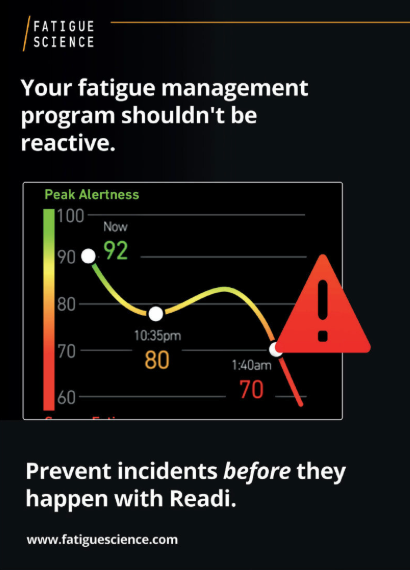Fatigue Science was asked to analyze how Fatigue contributed to the Westjet incident at Vancouver’s YVR Airport on April 15th, 2011.
Fatigue related accidents and close calls are completely preventable. Employers can be proactive and have their work schedules examined by the Fatigue Avoidance Scheduling Tool (FAST). This will tell them whether their schedules are creating dangerous periods of time when workers would be at a high risk of making a mistake or having an accident. It allows them to manage the risk to prevent the accidents from happening.
FAST was developed by the Walter Reed Army Institute of Research at the U.S. Army Medical Research Development Command to prevent fatigue related accidents and has been independently validated by the US Department of Transportation. FAST is used by many industries globally and is recommended by the world’s largest re-insurance company MunichRe.
Pilots of USA Airforce One use FAST to review schedule rosters before flight and ensure fatigue is not a risk factor.
The Canadian government and many Canadian industries are just beginning to address this important issue. Some have tried in the past but with FAST and Readibands they are now able to upgrade their fatigue management programs to a modern, evidence based system.




